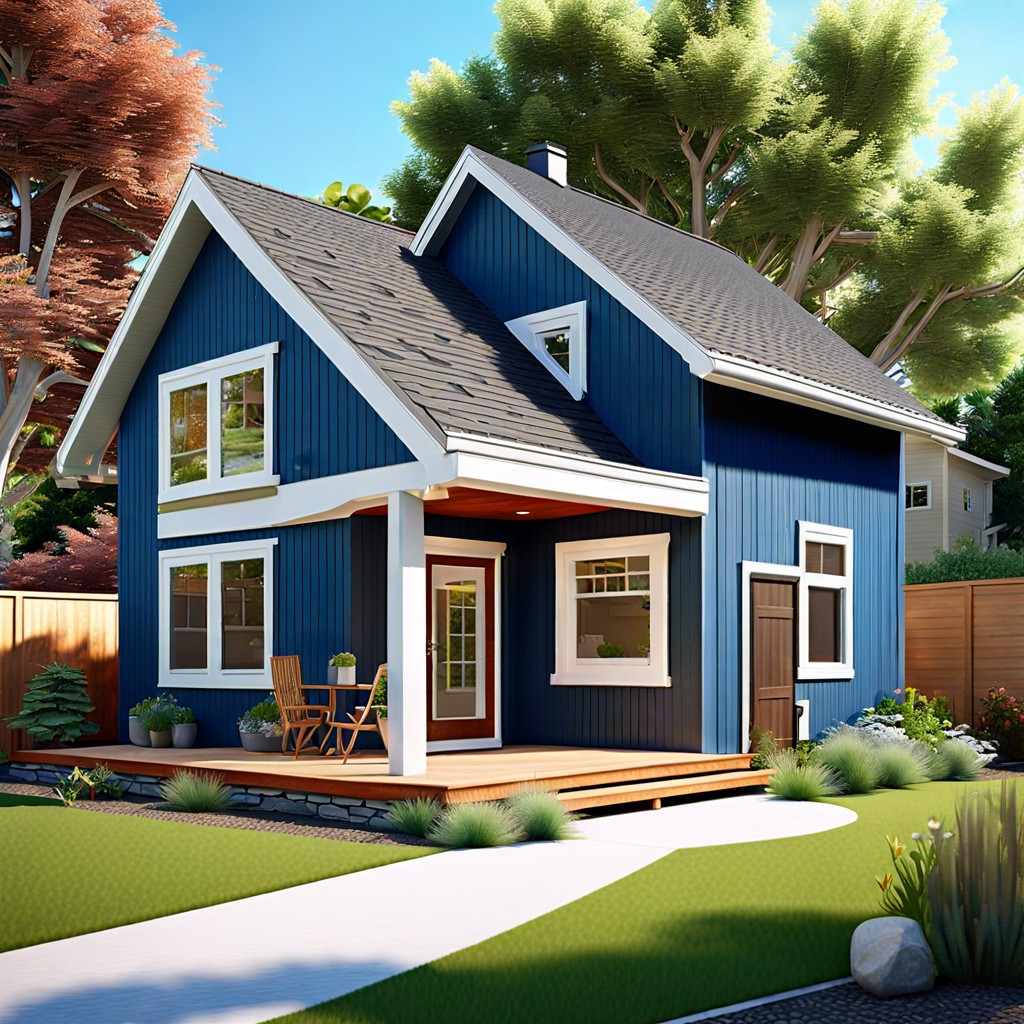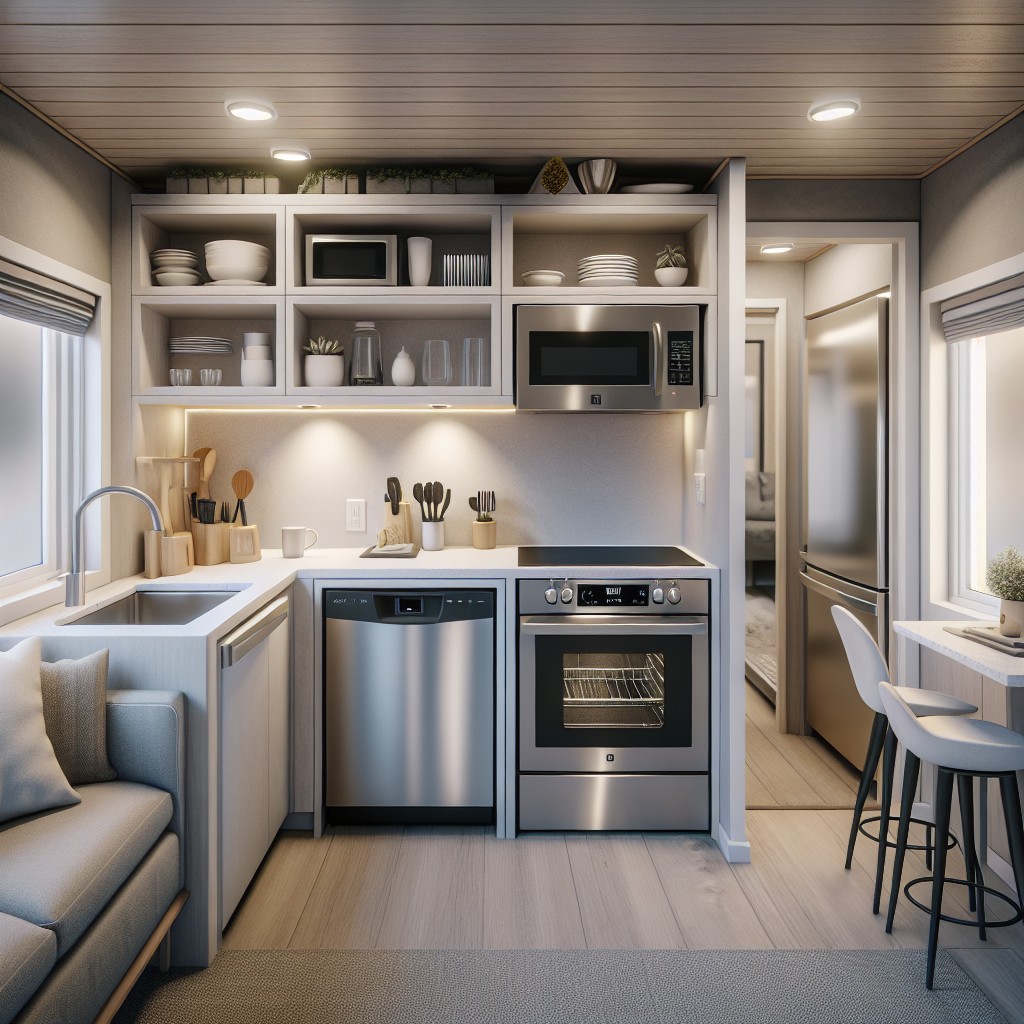Last updated on
Understanding ADU insurance is crucial for homeowners to ensure their accessory dwelling units are adequately protected; this article provides insights into coverage options and the importance of tailored policies.
Key takeaways:
- ADUs may be covered by homeowners insurance if they are occasionally used or unoccupied.
- Renting out an ADU may require additional coverage, such as landlord insurance.
- Homeowners insurance typically covers ADU structures and personal property.
- Detached ADUs may require their own insurance policy, while attached ADUs can often be covered under existing homeowners insurance.
- Landlord insurance is necessary for renting out an ADU, providing coverage for the structure, liability, and loss of rental income.
Are ADUs Covered By Homeowners Insurance?

Determining whether an accessory dwelling unit (ADU) falls under the umbrella of homeowners insurance hinges on specific policy details and how the ADU is used. Typically, a standard homeowners insurance policy may cover structures that are not used for business or rented out long-term. If an ADU is built on the same property as the main home and is only occasionally used or unoccupied, chances are, your existing policy might extend its coverage to that unit as well, protecting it against common perils like fire or storm damage.
However, it’s crucial to recognize that once you rent out an ADU, the insurance landscape shifts. Some policies might offer limited coverage or require an endorsement for rental activities. In these cases, you might need to explore additional coverage options such as landlord insurance to properly protect your investment and liability exposures.
Always consult with your insurance provider before assuming coverage. Confirm whether your current policy encapsulates the ADU and under what circumstances. Clarifying these details ahead of time can prevent headaches in the event of a claim, ensuring that your ADU is as well-protected as your main residence.
What Does Homeowners Insurance Cover for ADUs?
Understanding your homeowners insurance coverage is crucial when it comes to your ADU. Typically, the structure itself may be covered for damages resulting from incidents outlined in your policy, such as fire, severe weather, or vandalism. Personal property within the ADU often falls under the protection of the policy as well, which is beneficial if you furnish the space or your tenant’s belongings are damaged under a covered loss.
If the ADU is attached to your main home, your existing homeowners policy might extend to the unit without much fuss. However, for detached ADUs, you may need to update your policy or purchase additional coverage to include the separate structure. This ensures that in the event of a disaster, you’re not caught off guard by uncovered costs.
Liability coverage is another aspect to consider. Your policy likely encompasses liability protection, which would come into play if someone were injured on the property. Still, it’s essential to confirm that this extends to your ADU, especially if it’s rented out, as it might increase the risk of liability claims.
Loss of use coverage is a feature that can be particularly useful if your ADU is a rental. Should the unit become uninhabitable due to a covered peril, this part of your policy may compensate for lost rental income during repairs.
It’s a wise move to engage with your insurance provider to navigate the specifics as they apply to ADUs. They can assist in aligning your coverage with your needs, ensuring your peace of mind is as sturdy as the foundation of your ADU.
Types of ADUs and Insurance Implications
Understanding the different types of ADUs helps navigate their insurance implications. Detached ADUs, which stand separate from the main residence, might require their own insurance policy due to their distinct structure. This is especially vital if you plan to rent them out, as landlord insurance would be more appropriate to cover potential liability and property damage.
Attached ADUs, on the other hand, share a wall with the main home. Here, you may be able to extend your existing homeowner’s insurance to include the additional unit. However, ensure that the coverage limits are adequate to protect the increased value and additional risks the unit brings.
Conversion ADUs, created by transforming a part of the existing structure, like a basement or garage, typically can be covered under the primary homeowner’s insurance policy. It’s critical to inform your insurance provider about the conversion to adjust your coverage.
Ultimately, each type of ADU presents unique insurance needs, stressing the importance of a conversation with an insurance agent to tailor your policy appropriately.
What Type of Insurance Do You Need To Cover an ADU?
Navigating insurance for an ADU can seem complex, but understanding the basics simplifies the process. If your ADU is attached or within your primary residence, your existing homeowners policy might cover it, particularly if it’s not used for rental purposes. However, verify with your insurer whether additional coverage is required because of the increased value and risk associated with the added living space.
For detached ADUs or if you’re planning to rent out the space, landlord insurance becomes relevant. This type of policy typically covers the structure, liability protection, and loss of rental income. It’s crucial for landlords to protect their investment and ensure they are not exposed to financial risks due to property damage or injuries that occur on their property.
Another factor to consider is the insurance needs of your tenants. Encouraging renters to get renters’ insurance can provide them with personal property and liability coverage, which not only protects them but can also reduce potential disputes between tenant and landlord.
Renovation projects for creating an ADU can also necessitate updating your insurance policy. Inform your insurer about upgrades or structural changes to ensure the new value and risks are accounted for in your coverage.
In all cases, it’s beneficial to shop around. Insurance providers offer different policies, and some may include ADU coverage in standard homeowners policies, while others may require a separate endorsement. Comparing terms and rates can save you money and provide peace of mind.
Homeowners Policy
Understanding whether a standard homeowners policy extends to your accessory dwelling unit is imperative. Generally, coverage for detached structures, like a garage or shed, is included, but an ADU’s comprehensive use might necessitate additional coverage. For primary residences, such policies cover dwelling, personal property, liability, and additional living expenses.
When it comes to an ADU, these key components can play out differently:
- Dwelling Coverage: Your ADU’s structure should be explicitly mentioned in your policy to ensure any damage to the building will be covered.
- Personal Property: If furnishings or appliances within the ADU are damaged, you’ll want to confirm they’re protected under this section.
- Liability: If someone is injured on the premises of your ADU, liability coverage can be essential to protect you from out-of-pocket costs due to lawsuits or medical bills.
- Additional Living Expenses: If the ADU is your rental income source and it becomes uninhabitable due to a covered peril, this can help cover lost income.
Remember, policy limits and exclusions are critical here. Upgrading to a policy that specifically accounts for the unique aspects of your ADU may be advisable to ensure adequate protection. Always consult with your insurance provider to tailor your coverage to your ADU’s needs.
Related reading:
Table of Contents





